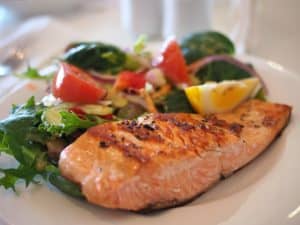The Mediterranean diet is widely considered as one of the most heart-friendly diets. The Mediterranean diet combines the basics of balanced eating with the Mediterranean’s typical spices and cooking methods.
Subsequent findings have shown that decreased risk factors for cardiovascular disease are correlated with the Mediterranean diet. This resulted in the development of massive interest by many prominent health authorities worldwide.
The components of Mediterranean diet
Typically, the Mediterranean diet is rich in vegetables, fruits, whole grains, beans, seeds and nuts, and unsaturated fats like olive oil. The main concept of this particular diet include:
- Daily intake of fruits, vegetables, whole grains, and healthy fats
- Weekly consumption of fish, poultry, beans, and eggs
- Moderate portions of milk products
- Small portions of red meat
Mediterranean diet meal plan
Plant-based food, namely various kinds of vegetables, fruits, herbs, nuts, beans, and whole grains form the foundation of the Mediterranean diet. At least five, preferably seven to ten portions of a variety of fruit and vegetables should be taken each day. Moderate amounts of dairy, poultry, and eggs are necessary, as is seafood. Weekly at least 2 portions of fish including 1 portion of oily fish (mackerel, herring, sardines, albacore tuna, salmon, lake trout, and other fishes rich in Omega 3 fatty acid) are recommended. Red meat is recommended only occasionally.
Apart from vegetables, seeds, and fruits, try to base your meals on starchy foods such as potatoes, bread, rice and pasta, bulgur, and farro. Choose whole-grain versions whenever possible.
Herbs and spices like garlic, ginger, mint, cinnamon, basil, rosemary, sage, nutmeg, pepper are widely used in preparing these dishes. They boost flavor and lessen the need for salt. Recommended healthy fats include extra virgin olive oil, olives, avocados.
Water is the preferred drink while avoiding drinks rich in added sweeteners and flavors is highly recommended. One should drink at least 6-8 glasses of fluids per day. Usually, the Mediterranean diet permits red wine in moderation.
Communal meals, relaxing after dining, and daily physical exercise, are given a strong emphasis in this diet.

Health benefits
Several studies have shown that the Mediterranean diet is beneficial for weight loss and helps prevent coronary artery disease including heart attack, stroke, dementia, type 2 diabetes, aging, even premature death! (as high as 20%). It has been proven that the Mediterranean diet enhances overall brain health as well as improves heart health.
Associated Health Risks
Just like any other great diet plans, in very few cases, the Mediterranean diet can sometimes lead to weight gain from consuming more than the recommended amount of fat (such as olive oil and nuts); low iron levels from not eating enough meat, low blood calcium due to consuming fewer dairy products. Overall, no major health issues have been reported in those following the Mediterranean diet meticulously.
Other than specific food allergies, no specific contraindication to the Mediterranean diet has been reported.
Recommendation by different authorities
The Mediterranean diet is recommended by the Dietary Guidelines for Americans, and World Health Organization (WHO) to promote healthy living and prevent many chronic diseases.
Some Mediterranean diet cookbooks
These are the books we recommend you for tasty Mediterranean diet recipes.
Additional reading
Click here to learn about Mediterranean diet pyramid: https://oldwayspt.org/resources/oldways-mediterranean-diet-pyramid
Click here to learn about the Ketogenic diet: https://costamedic.com/ketogenic-diet/



